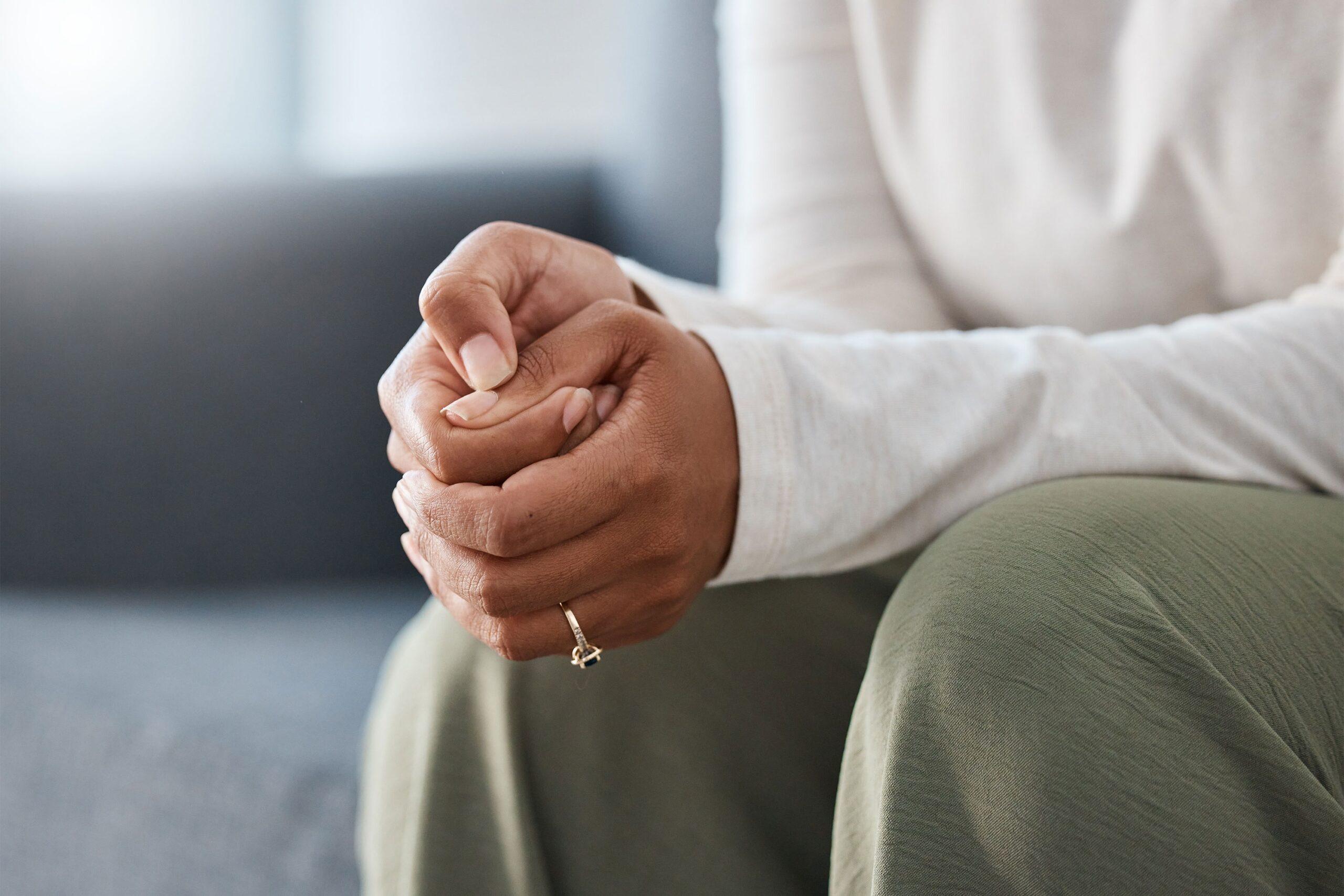Key Takeaways:
- Anxiety is a natural response to stress, but it can become overwhelming and debilitating.
- Anxiety has a biological basis, with dysregulation in the brain’s fear circuitry contributing to anxiety disorders.
- Anxiety affects various aspects of daily life, including work performance, relationships, and physical health.
- Therapy is an essential component of treating anxiety, providing individuals with tools and strategies to overcome their anxiety.
- Different therapy approaches, such as cognitive-behavioral therapy and exposure therapy, can effectively treat anxiety disorders.
- Therapy helps individuals develop resilience and adaptability in managing anxiety.
- A strong support system is crucial for managing anxiety, providing comfort and practical assistance.
- Social connection and support from family and friends can alleviate feelings of isolation and loneliness.
- Mindfulness, challenging negative thoughts, and reframing are practical strategies for managing and reducing anxiety.
- Overcoming anxiety requires a comprehensive approach that includes therapy, support systems, and practical strategies.
Understanding Anxiety and Its Effects
Anxiety is a natural response to stress, but for millions of people worldwide, it becomes overwhelming and debilitating. The constant worry, fear, and intrusive thoughts associated with anxiety can have a profound impact on daily life, affecting everything from work productivity to personal relationships.
The Science of Anxiety
Anxiety is not just a state of mind; it has a biological basis as well. When we perceive a threat or danger, our brain activates the “fight-or-flight” response, releasing stress hormones like cortisol and adrenaline. These hormones prepare our body to react quickly, increasing our heart rate, sharpening our senses, and tensing our muscles.
However, for individuals with anxiety disorders, this response becomes disproportionate and irrational. The brain perceives everyday situations as dangerous, triggering the fight-or-flight response when there is no real threat. This dysregulation in the brain’s fear circuitry contributes to the development and persistence of anxiety disorders.
The Impact of Anxiety on Daily Life
Anxiety doesn’t just affect our mental state; it also has significant effects on various aspects of daily life. For example, anxiety can interfere with work performance, making it difficult to concentrate, make decisions, or meet deadlines. It can also affect relationships, causing individuals to withdraw socially or become overly dependent on others.
Furthermore, chronic anxiety can take a toll on physical health. Studies have shown that people with anxiety disorders are more prone to developing conditions such as high blood pressure, heart disease, and gastrointestinal problems. Additionally, excessive worrying can lead to insomnia and other sleep disturbances, further exacerbating the impact on overall well-being.
Benefits of Therapy for Anxiety
While medication can be effective in managing anxiety symptoms, therapy is an essential component of treatment. Therapy provides individuals with the tools and strategies they need to understand and overcome their anxiety, empowering them to take control of their lives once again.
Exploring Different Therapy Approaches
There are several therapeutic approaches that have proven to be effective in treating anxiety disorders. One commonly used approach is cognitive-behavioral therapy (CBT), which focuses on identifying and changing negative thought patterns and behaviors that contribute to anxiety. Through CBT, individuals learn new coping skills and develop a more balanced perspective on their fears.
Another approach is exposure therapy, which involves gradually exposing individuals to the situations or triggers that provoke anxiety in a safe and controlled manner. By repeatedly facing their fears, individuals can learn that their anxiety is manageable and that they can tolerate the discomfort associated with it.
Additionally, mindfulness-based therapies, such as acceptance and commitment therapy (ACT) and mindfulness-based stress reduction (MBSR), can be beneficial in helping individuals cultivate a non-judgmental awareness of their thoughts and emotions. These practices teach individuals to observe their anxiety without getting caught up in the spiral of negative thinking.
The Role of Therapy in Managing Anxiety
Therapy for anxiety is to provide a supportive and non-judgmental environment where individuals can explore the root causes of their anxiety and develop effective coping mechanisms. By working closely with a trained therapist, individuals can gain a deeper understanding of their triggers and learn techniques to reduce anxiety in real-time.
Furthermore, therapy helps individuals develop resilience and adaptability, enabling them to navigate life’s challenges more effectively. Therapists can provide tools and strategies that individuals can continue to use long after therapy sessions end, empowering them to overcome anxiety independently.
Building a Support System for Anxiety
While therapy is invaluable, having a support system in place is also crucial for managing anxiety. A strong support system can provide comfort, reassurance, and practical assistance when needed.
The Power of Social Connection
Social connection has a profound impact on mental health, and this rings especially true for individuals with anxiety. Participating in social activities and cultivating meaningful relationships can reduce the feelings of isolation and loneliness that often accompany anxiety. Whether it’s joining a support group, engaging in hobbies, or spending time with loved ones, social connection provides a sense of belonging and support.
How Family and Friends Can Help
Family and friends play a vital role in supporting individuals with anxiety. Loved ones can offer empathy, understanding, and encouragement, creating a safe space for individuals to express their fears and worries. It’s essential for family members and friends to educate themselves about anxiety disorders to better understand the challenges their loved ones may face.
Practical support can also be invaluable. Simple acts such as helping with household tasks or accompanying individuals to therapy sessions can alleviate some of the stress and anxiety they may experience. Additionally, loved ones can learn about relaxation techniques or breathing exercises to assist individuals during moments of heightened anxiety.
Practical Strategies for Overcoming Anxiety
Alongside therapy and a support system, individuals can employ practical strategies to manage and overcome anxiety on a day-to-day basis. These strategies can significantly improve their overall well-being and quality of life.
Mindfulness and Anxiety Reduction
Mindfulness is a practice that involves paying attention to the present moment and accepting it without judgment. Multiple studies have shown that mindfulness can reduce anxiety symptoms by reducing rumination, enhancing self-compassion, and improving emotion regulation.
Practicing mindfulness can involve various techniques such as deep breathing, meditation, and body scans. By incorporating mindfulness into their daily routine, individuals can learn to anchor themselves in the present moment, calming their anxious thoughts and reducing the physical symptoms of anxiety.
Challenging Negative Thoughts and Beliefs
Negative thoughts and beliefs often fuel anxiety, creating a cycle of worry and fear. It’s important for individuals to identify and challenge these thoughts to reduce their anxiety levels.
One effective technique is cognitive restructuring, which involves examining the evidence supporting and contradicting negative thoughts. By challenging the validity of these thoughts and replacing them with more realistic and positive beliefs, individuals can break free from the grip of anxiety.
Another useful strategy is reframing, which involves looking at a situation from a different perspective. By reframing negative situations in a more positive light, individuals can alleviate anxiety and cultivate a more optimistic mindset.
In conclusion, overcoming anxiety is a journey that requires a comprehensive approach. Therapy, support systems, and practical strategies all play a crucial role in empowering individuals to take control of their anxiety and live a fulfilling life. By understanding the science behind anxiety, exploring therapy options, and building a robust support network, individuals can find the resilience and strength to overcome their anxiety and thrive.
FAQ
Question: What is the difference between natural anxiety and anxiety disorders?
Answer: Natural anxiety is a normal response to stress, while anxiety disorders involve excessive and irrational fear or worry that significantly impacts daily life.
Question: How does anxiety affect work performance?
Answer: Anxiety can interfere with concentration, decision-making, and meeting deadlines, leading to decreased work productivity.
Question: What are some physical health problems associated with chronic anxiety?
Answer: Chronic anxiety can contribute to conditions such as high blood pressure, heart disease, gastrointestinal problems, and sleep disturbances.
Question: How does cognitive-behavioral therapy help in treating anxiety?
Answer: Cognitive-behavioral therapy (CBT) focuses on identifying and changing negative thought patterns and behaviors that contribute to anxiety, providing individuals with new coping skills and a more balanced perspective on their fears.
Question: How does exposure therapy work for anxiety?
Answer: Exposure therapy gradually exposes individuals to anxiety-provoking situations in a safe and controlled manner, helping them learn that their anxiety is manageable and they can tolerate the discomfort associated with it.
Question: What are some mindfulness-based therapies for anxiety?
Answer: Mindfulness-based therapies, such as acceptance and commitment therapy (ACT) and mindfulness-based stress reduction (MBSR), help individuals cultivate non-judgmental awareness of their thoughts and emotions, reducing anxiety symptoms.
Question: How can a support system help in managing anxiety?
Answer: A strong support system provides comfort, reassurance, and practical assistance, reducing feelings of isolation and loneliness often associated with anxiety.
Question: What are some practical strategies for managing anxiety?
Answer: Practicing mindfulness, challenging negative thoughts, and reframing situations are practical strategies that can help individuals manage and reduce anxiety on a day-to-day basis.










